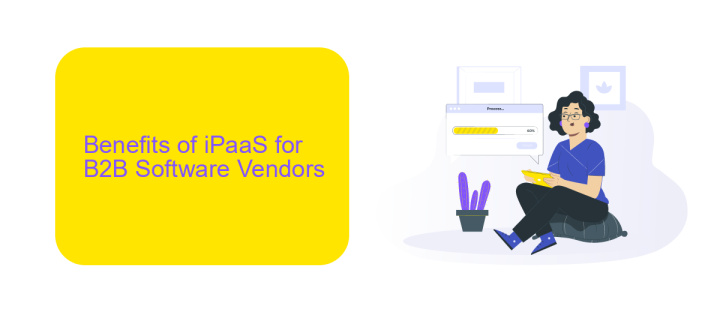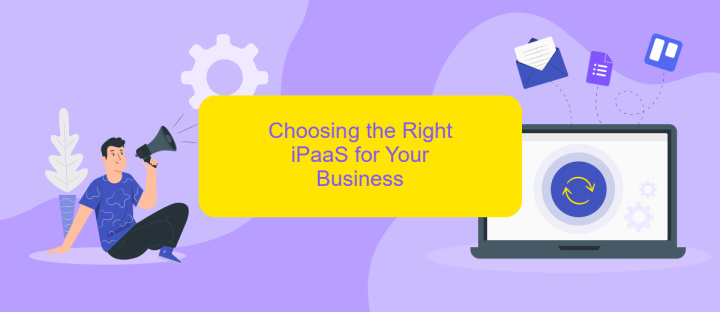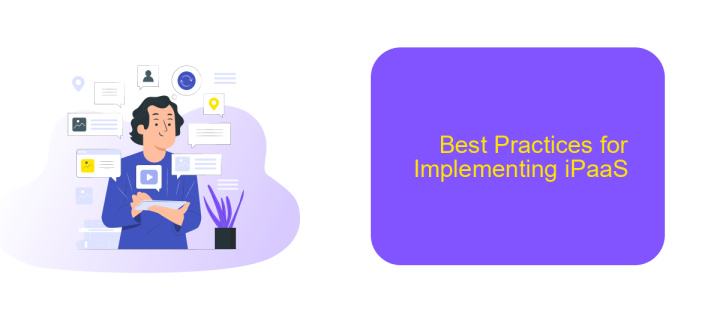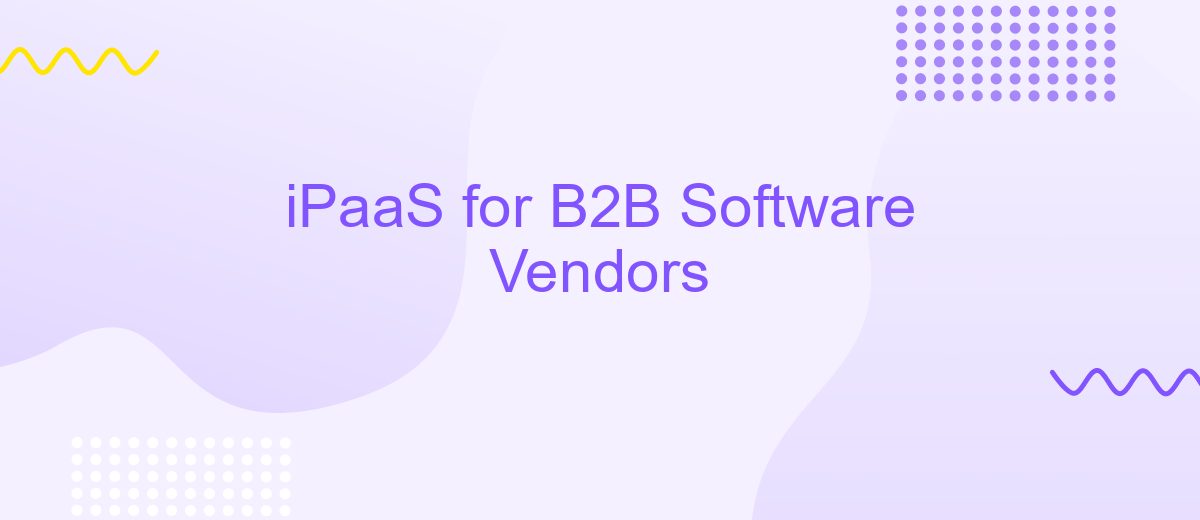iPaaS for B2B Software Vendors
In today's fast-paced digital landscape, B2B software vendors are constantly seeking ways to streamline operations and enhance connectivity with their clients. Integration Platform as a Service (iPaaS) offers a robust solution, enabling seamless integration of disparate systems and data flows. This article explores how iPaaS can revolutionize the way B2B software vendors manage integrations, boosting efficiency and driving business growth.
Introduction
In today's fast-paced digital landscape, businesses are increasingly relying on Integrated Platform as a Service (iPaaS) solutions to streamline their operations and enhance connectivity. For B2B software vendors, iPaaS offers a powerful way to integrate various applications and services, enabling seamless data flow and operational efficiency.
- Automated workflows for enhanced productivity
- Real-time data synchronization across platforms
- Scalable solutions to meet growing business needs
- Improved collaboration between different business units
One standout tool in this domain is ApiX-Drive, which simplifies the integration process, allowing businesses to connect multiple applications without the need for extensive coding knowledge. By leveraging such iPaaS solutions, B2B software vendors can not only improve their service offerings but also provide their clients with a more cohesive and integrated user experience.
Benefits of iPaaS for B2B Software Vendors

Implementing iPaaS (Integration Platform as a Service) offers numerous benefits for B2B software vendors. One of the primary advantages is the streamlined integration process. With iPaaS, vendors can easily connect disparate systems and automate workflows, reducing the time and effort required for manual data transfer. This enhances operational efficiency and ensures data consistency across various platforms, leading to more reliable and accurate business insights.
Furthermore, iPaaS solutions like ApiX-Drive provide customizable integration options that cater to specific business needs. Vendors can quickly set up integrations without extensive coding knowledge, allowing them to focus on core business activities. Additionally, iPaaS platforms offer scalability, enabling businesses to adapt to changing demands and integrate new applications seamlessly. This flexibility not only saves time and resources but also supports long-term growth and innovation in the competitive B2B market.
Choosing the Right iPaaS for Your Business

Choosing the right iPaaS for your business is a crucial decision that can significantly impact your operational efficiency and integration capabilities. The right iPaaS should align with your specific business needs, scalability requirements, and technical infrastructure.
- Identify Your Integration Needs: Understand what systems and applications you need to integrate. Prioritize features like real-time data synchronization, API support, and pre-built connectors.
- Evaluate Ease of Use: Ensure the platform is user-friendly and offers a straightforward setup process. Platforms like ApiX-Drive provide intuitive interfaces and easy-to-follow guides for seamless integrations.
- Consider Scalability: Choose an iPaaS that can grow with your business. Check if the platform can handle increasing data volumes and more complex workflows as your business expands.
- Security and Compliance: Verify that the iPaaS complies with industry standards and regulations. Look for features like data encryption, access controls, and audit logs.
- Cost and ROI: Assess the pricing model and ensure it fits within your budget. Consider the potential return on investment through improved efficiency and reduced manual work.
By carefully evaluating these factors, you can select an iPaaS that not only meets your current integration needs but also supports your future growth. A platform like ApiX-Drive can offer the flexibility and reliability necessary for seamless B2B integrations.
Best Practices for Implementing iPaaS

Implementing an Integration Platform as a Service (iPaaS) can significantly streamline processes for B2B software vendors. To ensure a successful implementation, it is crucial to follow best practices that address both technical and organizational aspects. Start by clearly defining your integration goals and requirements, as this will guide your entire implementation strategy.
Next, select an iPaaS solution that aligns with your business needs. Consider factors such as scalability, ease of use, and support for various integration patterns. ApiX-Drive, for example, offers a user-friendly interface and robust capabilities to connect multiple applications seamlessly, making it a valuable tool for B2B vendors.
- Conduct thorough testing of all integrations before going live.
- Ensure that your team receives adequate training on the iPaaS platform.
- Monitor and maintain integrations regularly to avoid disruptions.
- Document all integration processes and configurations for future reference.
Finally, foster a culture of continuous improvement by regularly reviewing and optimizing your integration workflows. This will help you adapt to changing business needs and technological advancements, ensuring long-term success with your iPaaS implementation.
Conclusion
In conclusion, iPaaS solutions offer B2B software vendors a streamlined and efficient way to manage integrations and data flows between various applications. By leveraging iPaaS platforms, businesses can significantly reduce the time and resources required for manual integration processes, leading to improved operational efficiency and faster time-to-market for their products. Furthermore, the scalability and flexibility provided by iPaaS ensure that companies can easily adapt to changing business requirements and technological advancements.
One notable example of an effective iPaaS solution is ApiX-Drive, which simplifies the setup of integrations and automates data transfers between different systems. This service allows B2B software vendors to focus on their core competencies while ensuring seamless connectivity between their applications and those of their partners. By adopting iPaaS solutions like ApiX-Drive, businesses can enhance their competitive edge, foster innovation, and ultimately deliver superior value to their customers.
- Automate the work of an online store or landing
- Empower through integration
- Don't spend money on programmers and integrators
- Save time by automating routine tasks
FAQ
What is iPaaS and how can it benefit B2B software vendors?
How does iPaaS improve the integration process for B2B software vendors?
Can iPaaS handle large volumes of data and complex integrations?
What are some common use cases for iPaaS in B2B environments?
How can B2B software vendors get started with iPaaS?
Apix-Drive will help optimize business processes, save you from a lot of routine tasks and unnecessary costs for automation, attracting additional specialists. Try setting up a free test connection with ApiX-Drive and see for yourself. Now you have to think about where to invest the freed time and money!


